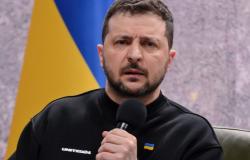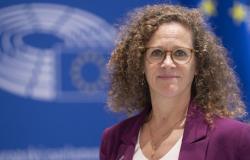Russia receives weapons and ammunition from Iran and North Korea and is willing to pay many lives for every small success on the Ukrainian battlefield. This was said by NATO Secretary General Jens Stoltenberg during the meeting of foreign ministers of NATO member countries in Brussels. According to him, Kyiv’s allies must provide long-term, more predictable and robust assistance, which should be more coordinated by NATO. Stoltenberg’s successor in the position of Secretary General will be discussed at the two-day meeting, among other things.
“We see the Russians getting ammunition and weapons from North Korea and Iran. And we see how Moscow is willing to pay a very high price in the form of people and material for minor successes on the battlefield in Ukraine, they have zero respect for human life,” Stoltenberg said after the meeting.
According to him, aid to Ukraine should be more coordinated by NATO and thus take over to a certain extent the role of the contact group for Ukraine, which is now led by the United States. Stoltenberg prepared a proposal that talks about the creation of a so-called Ukrainian fund in the amount of 100 billion euros for five years. Its creation should prevent Kyiv from finding itself without help if Donald Trump becomes US president in the fall. There are fears that Trump will not support Ukraine.
The NATO chief did not provide details on his proposal. “We must persist in our firm support for Ukraine, any delays or delays have serious consequences for the situation on the battlefield,” Stoltenberg said. According to the NATO Secretary General, the alliance must “change the dynamic” of providing support to Ukraine. “We need to ensure reliable and predictable aid to Ukraine in the long term, so that we rely less on voluntary contributions and more on NATO commitments. Less on short-term offers and more on multi-year promises,” added Stoltenberg.
The German foreign minister described the proposal as “correct and important”. Aid to Ukraine should be disbursed through “reliable, long-term structures,” Annalena Baerbock said. The head of Latvian diplomacy also praised the proposal, according to him, the fund to help Ukraine could be financed by individual NATO member states. At the same time, contributions could be derived according to the GDP of individual countries, Krišjánis Kariňš told journalists.
On the contrary, Hungary, for example, has a problem with this proposal. Foreign Minister Péter Szijjártó has made it clear that he will not support any NATO proposal that would drag the alliance further into war or change it from a defensive to an offensive coalition.” https://twitter.com/zoltanspox/status/1775447544086061181 on the X social network government spokesman Zoltán Kovacs.
During the meeting in Brussels, among other things, July’s big NATO summit, which will be held in Washington, is discussed. And also who will replace Stoltenberg in the position of secretary general of the alliance, since his mandate will end in October. The favorite is Dutch Prime Minister Mark Rutte, who has the support of 28 of the 32 member countries of the alliance. But he supports everyone’s support. Hungary and Romania are still opposed. On the contrary, Estonian Prime Minister Kaja Kallas, who was also discussed as a possible candidate for this position, also expressed her support for Rutte.
We need more money, says Lipavský
Czech Foreign Minister Jan Lipavský (Pirates) said in Brussels that more money is needed for the Czech initiative to buy ammunition for Ukraine. According to data from the Czech government and the press, around twenty countries have joined the initiative so far. Lipavský previously said that Prague has so far obtained funds from the allies for the purchase of the first 300,000 pieces of ammunition and another half a million pieces are in question. The Ministry of Defense has now stated that roughly 500,000 pieces of artillery ammunition can be purchased from the money promised so far for the Czech initiative.
“We need more money. We need more money for ammunition. We need more ammunition for Ukraine,” Lipavský said when he arrived at the meeting of NATO foreign ministers. According to him, Russia is still capable of producing much more ammunition and “unfortunately, this math matters in war.” “We want Ukraine to be able to defend itself against Russian aggression. This is exactly what our initiative is supposed to help with. That’s why I basically call on everyone to join and pledge money,” added the head of Czech diplomacy.
Among others, Canada, Germany, Poland, Latvia, Lithuania, Estonia, Belgium, Finland, Portugal, Sweden, Norway, Denmark, the Netherlands, Luxembourg, Iceland and Slovenia signed up to the initiative. The Czech Republic does not disclose details of the contributions of individual countries. But the countries themselves gradually publish the amount they have contributed or how much they have promised. In total and converted, these contributions amount to approximately 35 billion crowns. This corresponds to the estimate of the British newspaper Financial Times – it wrote at the end of February that the purchase announced by the Czech Republic should come to 1.5 billion dollars (about 35 billion crowns).
Tags: Russia pay lives small successes battlefield Stoltenberg told ministers
-




